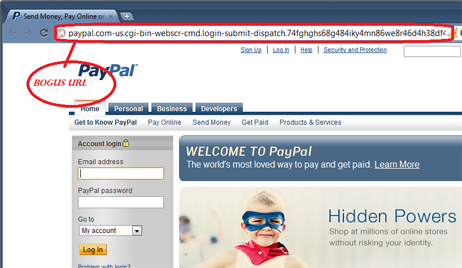SSL Certificate Benefits – How Comodo SSL Helps to Secure Your Site
Understand why SSL Certificate is an indispensable part of web security
Gone are the days when SSL certificates were considered to be a luxury. In today’s age where hackers are always lurking, and users are more vigilant than ever, securing a website using an SSL/TLS certificate is nothing but a norm that everyone has to follow. If you have a website, you have an SSL – it’s as simple as that! This is because an SSL certificate accomplishes two of the most significant requirements from the security point of view – Authentication and Encryption.

“Identity Verification” is a must these days
Seriously, how can one trust someone on the internet? How can you be so sure that a website belongs to the party that it says it? What if someone creates a website by someone else’s name and runs a scam to trick users into giving their sensitive information? That’s why an SSL certificate is of paramount importance. The very first part if you want to issue an SSL cert is the verification/vetting process. A trusted, third-party entity named ‘Certificate Authority’ conducts the vetting procedure to make sure of your legitimacy so that only the legitimate people/organizations get hold of the certificates. The rules and regulations of this verification process are set by CAB forum – a joint forum of the CAs and browsers.
SSL safeguards your data through “Encryption”
As far as the encryption part is concerned, an SSL/TLS certificate protects data-in-transit. It means that any information you send/receive on an SSL-enabled (HTTPS) website. It can’t get more secure than this. All of Comodo SSL certificates feature robust 256-bit symmetric encryption, something that cannot be cracked by the fastest supercomputer in the world in thousands of years. So, wave bye-bye to your worries about data security.
“Trust Indicators”: You must show what you got
Let’s say you just installed an SSL cert on your website. How are you going to make your visitors aware of the fact that the website really belongs to you? You must show them some evidence in the form of indicators, right? Well, an SSL certificate will take care of that, too. Once you install your certificate, your site is equipped with the trust-signs that vouch for your legitimacy and let the users know about it. The nature of these indicators depends on the type of certificate you’ve purchased. However, signs such as padlock, site-seal, and https at the front of your URL are common amongst all. If you want to display your company name in the highly sought-after Green Address Bar, you must purchase an Extended Validation (EV) SSL certificate.
It’s a matter of “Trust”
Another thing we’d like to point out is that many organizations, and people tend to think that SSL is only needed if you want to carry out financial transactions on your website. This belief is as wrong as it gets. Even if you don’t have such provision, you need SSL. That’s because all the leading browsers including Chrome, Firefox, IE, Safari, have started labeling non-HTTPS sites as ‘Not Secure’ in a matter that the users can’t ignore it. This could and would damage your online reputation. So, in a way, an SSL certificate makes a user/visitor feel secure on your website and enhances his/her online experience.
SSL is a shark to all the “Phishes”
If you have even a slightest of interest in a thing called ‘internet,’ you must’ve heard of the thing called Phishing. Through Phishing, a perpetrator creates a website that looks like a genuine website to trick users into giving their sensitive information and possibly their money. Here’s an example of a website pretending to be PayPal website:

Now here’s where SSL/TLS certificate comes to save the day. As the process to obtain an SSL certificate involves a verification process, only the legitimate, genuine people/organizations can obtain one. As a result, the users will be able to distinguish between a real and a fake site and Phishing is thrown out of window (almost).
If you “Accept Online Payments”, you MUST use SSL
Payment Card Industry Security Standards Council, a body comprising of the biggest card brands in the world has made the use of SSL mandatory for all the merchants accepting online payments. If you don’t, you could land yourself in some serious trouble. That’s why SSL is an absolute must if you accept online payments.
An SSL certificate helps you generate “Higher Revenues”
Yes, you heard (read, in this case) that right. Numerous studies indicate a clear relationship between customer trust levels and site indicators. Heck, you don’t need to refer a research paper for this. Just ask yourself whether you’d prefer to buy from a secure site or an unsecure one? If you’re in right frame of mind, or any frame of mind, you’d always opt for the former. Ultimately, this results in increased conversion rates and higher revenues.
If you care about your “Google Rankings”, you must be on HTTPS
Let’s get this straight, you have a website, and you want it to rank it on top of the pile on a Search Engine. Everybody wants that, and there’s nothing wrong with that. Majority of the traffic comes directly from the Search Engine results, and you be visible to get that traffic. What if we told you that SSL/TLS certs help you do that? In 2014, Google, the undisputable leader of Search Engines declared that it’d give higher preference to an HTTPS website as a part of its mission to encrypt entire web. Of course, it’s not going to have a major impact, but you must make the best use of everything that you have, right?
Final Note
Next time the question “Do I need SSL Certificate?” pops up in your mind, alter the question to “Why do I need SSL certificate and what type of SSL certificate will be suitable to my requirements?”
Let us tell it one more time, SSL is not a luxury; it’s an out and out necessity nowadays.


 (18 votes, average: 4.56 out of 5)
(18 votes, average: 4.56 out of 5)